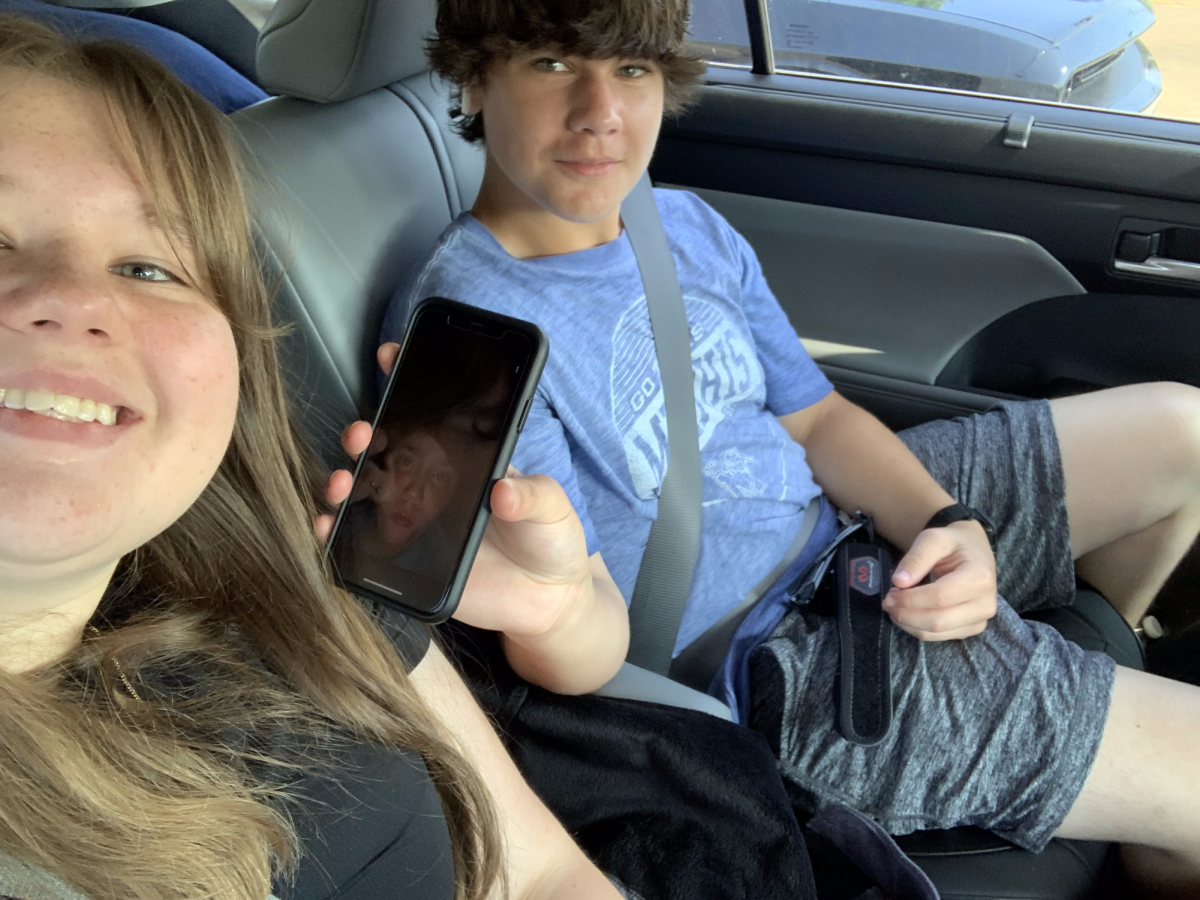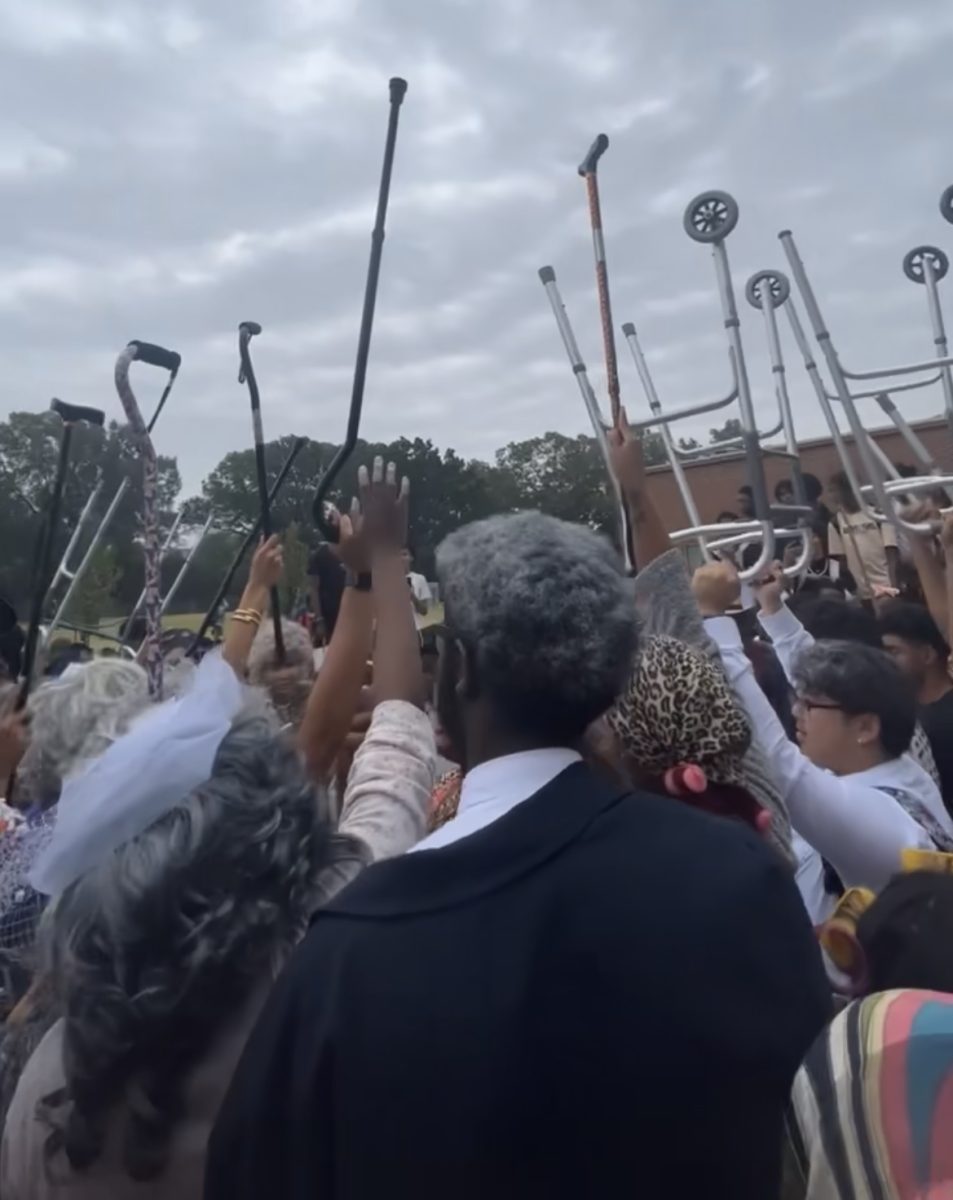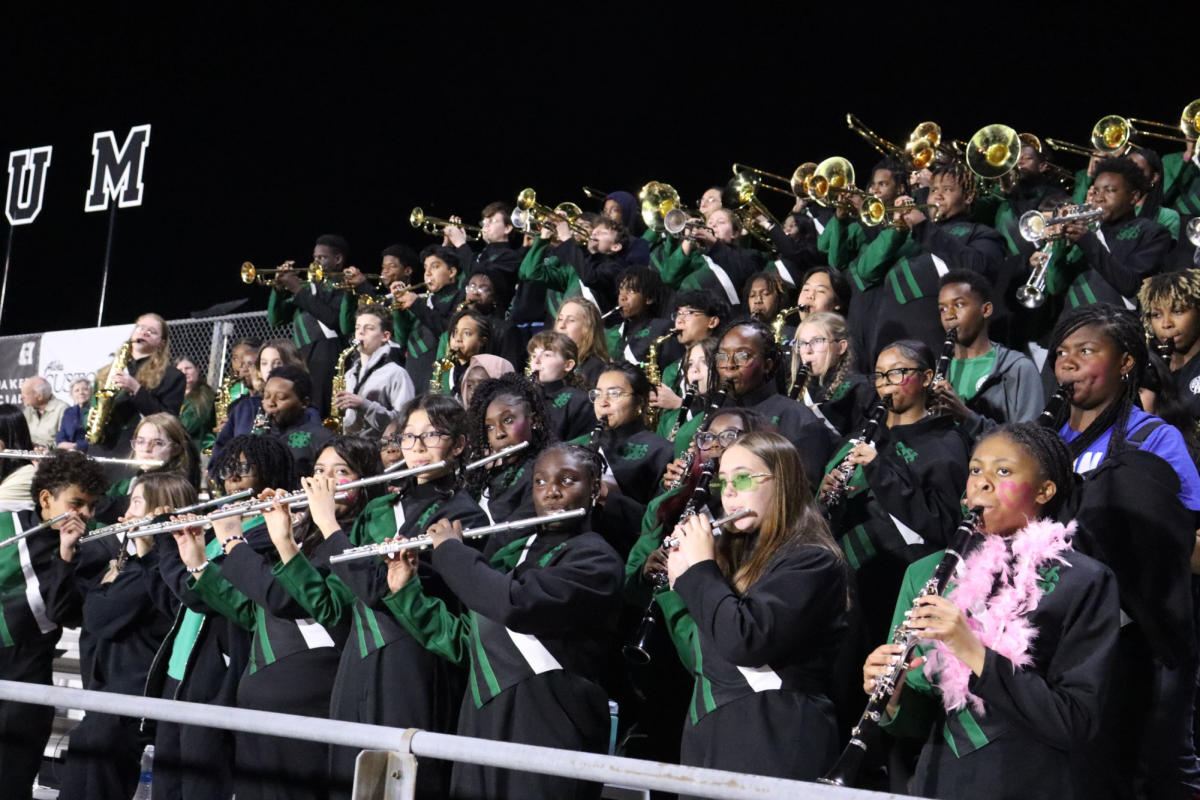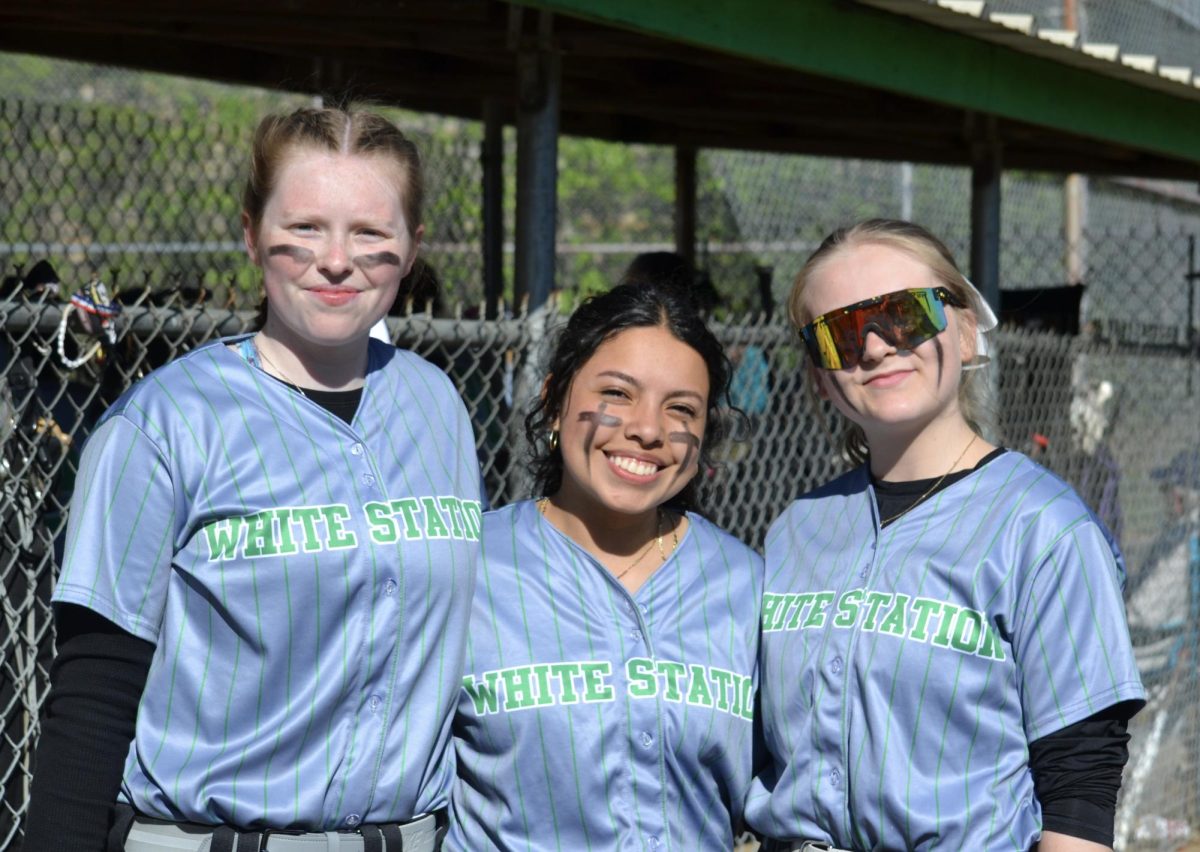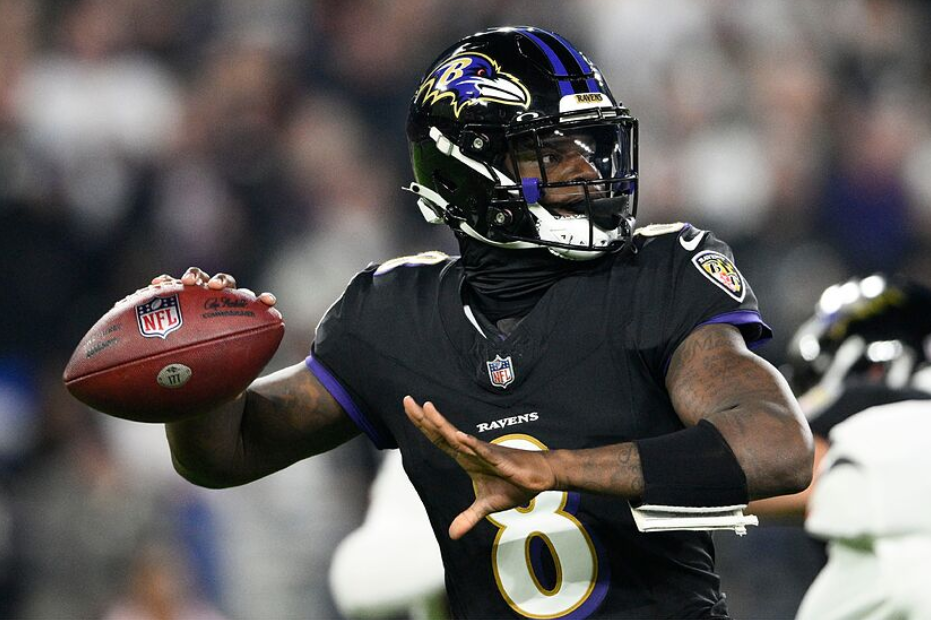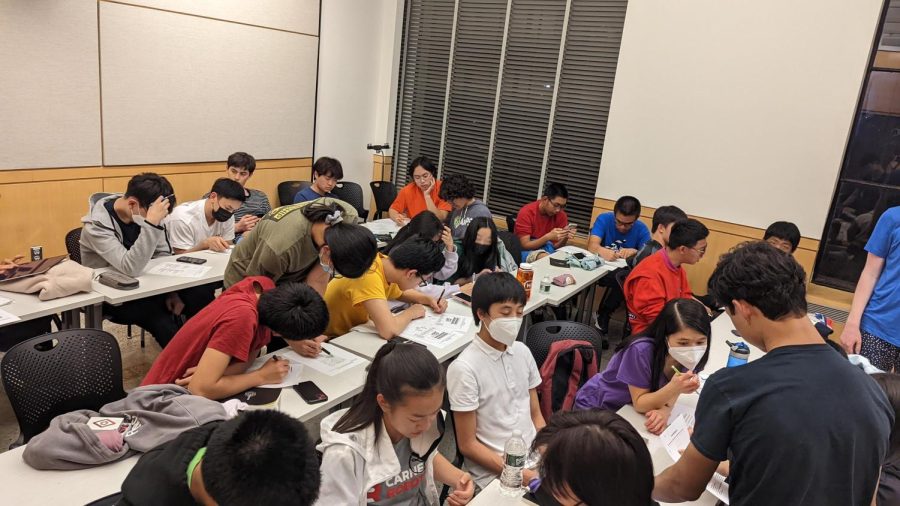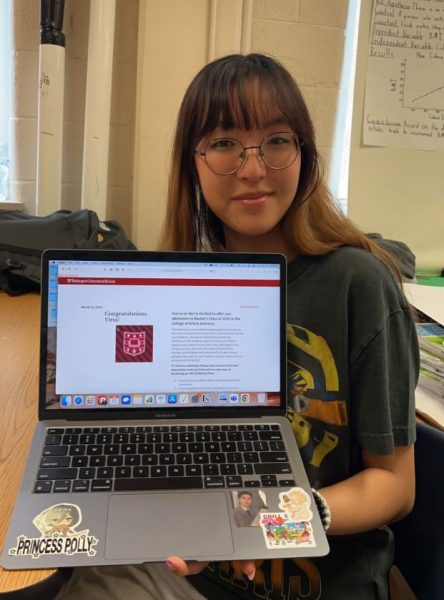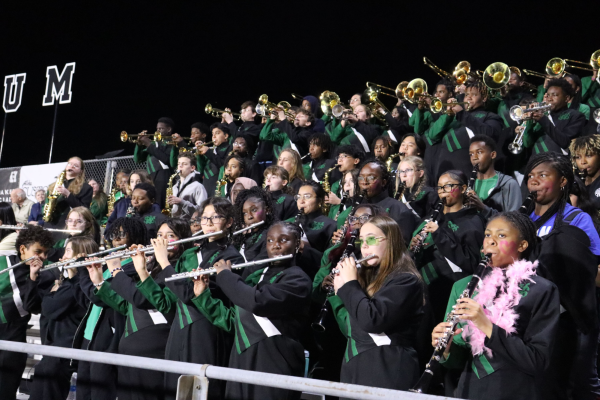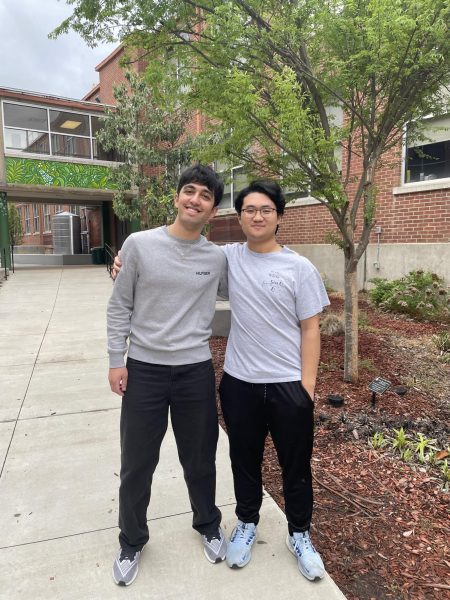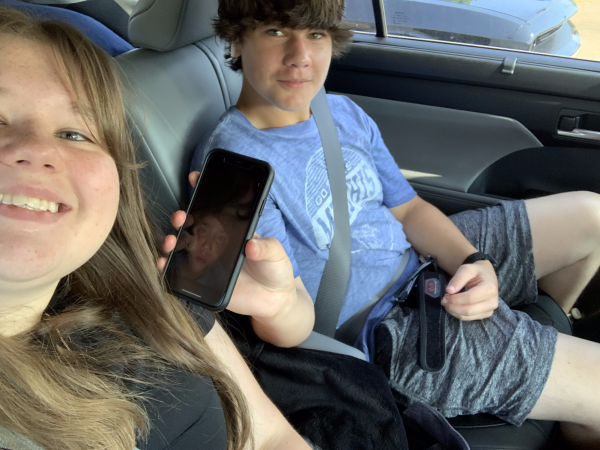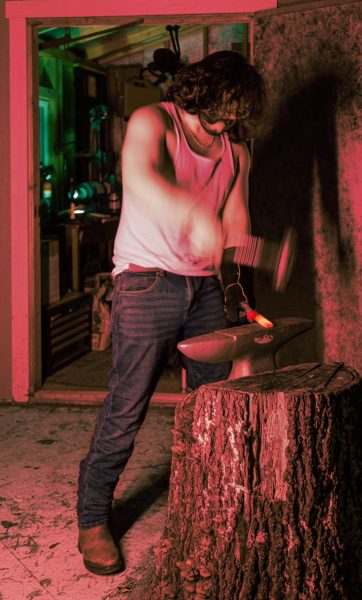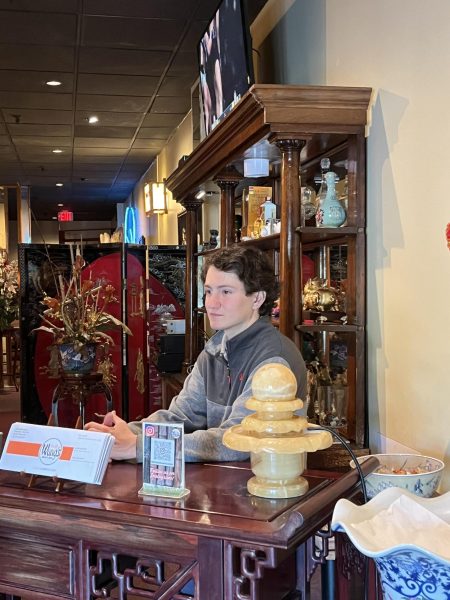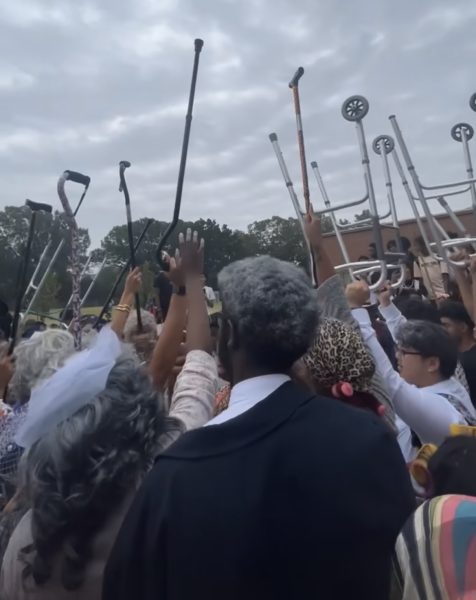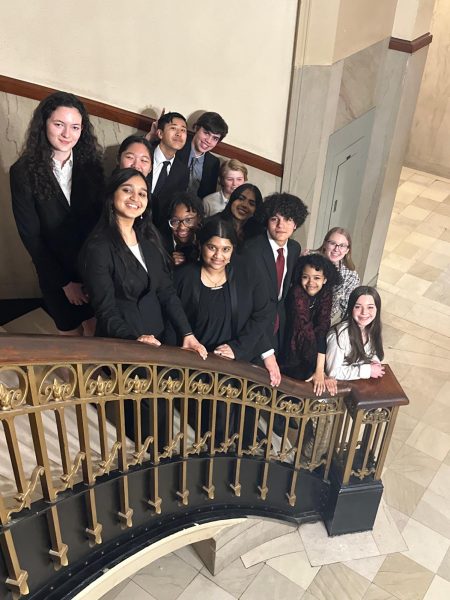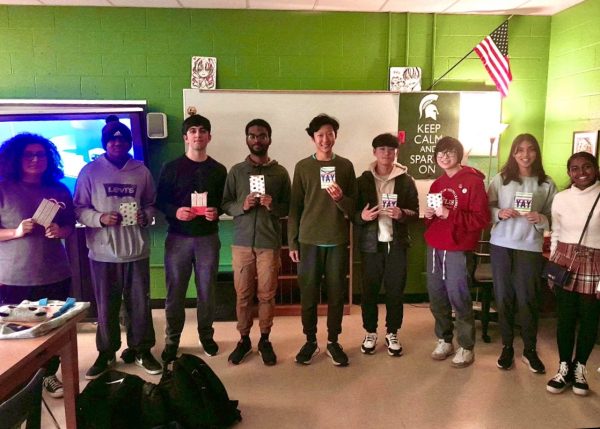Math team competes at Harvard and MIT
KAYDEN LI//USED WITH PERMISSION
The White Station Math Team (middle row) huddles together to solve logic puzzles at an event at the Massachusetts Institute of Technology. All teams competed to solve the puzzles for small prizes.
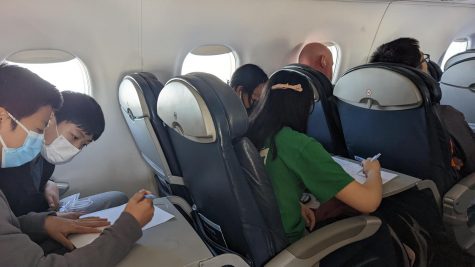
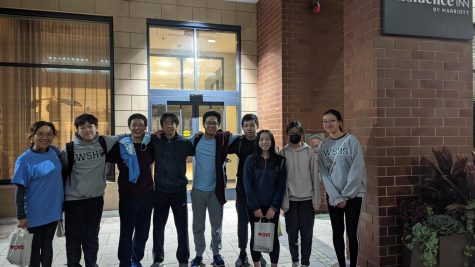
(KAYDEN LI//USED WITH PERMISSION)RA
Countless students dream of striding through the halls of Harvard and the Massachusetts Institute of Technology, but for eight members of the White Station Math Team, this dream became reality. The Harvard MIT Mathematics Tournament is a prestigious international tournament for high school math teams. With the exception of the top 10 schools in the country, schools secure spots by lottery. The last time White Station was selected was three years ago, but this year, it was lucky enough to make the draw again.
“Originally, we weren’t selected, which was a bummer,” Youheng Zheng (9) said. “But then, right before the competition, they basically said … ‘you guys are selected.’ So, we chose an eight person team and we … went.”
Math competitions of this caliber take a colossal amount of preparation. The vast number of teams and difficulty of the competition means that every extra problem counts. The team must come together and combine their skills during competition, but most of the preparation is individual.
“For these kinds of things … it takes like a lot of hours behind the competitions, maybe five to six hours,” math team captain Ray Wu (12) said. “You would just be sitting there and doing questions … it’s a thing where you don’t realize you’re getting better until it finally all comes together at one time, so it’s long, but it’s worth it.”
The team only had about two weeks’ notice that they were competing before HMMT began. However, they tried to make the most of the little time they had, to the point of studying on the flight to the competition.
“We were competing against the best international teams, so we weren’t planning on winning anything,” Ray Wu said. “We just wanted to … have fun.”
The competition was centered around four rounds. Teams raced against each other trying to master both precision and accuracy.
“[The] first two [rounds], they were individual,” Annie Wu (10) said. “[They were] called the ‘general round,’ and then the ‘theme round’ … and this year it was Alice in Wonderland… after that, we have the team round, and then after that, there’s a round called ‘guts’ where … you have like several packets of three questions, and it’s like a relay race.”
The material covered in HMMT extends over various fields of math. Much of the difficulty comes from unique formulas with twists that are not taught in regular school courses. These problems require competitors to possess enough creativity and knowledge to think outside of the box.
“It’s basically like competition math [and covers] four categories which [include] counting, geometry, algebra, number theory,” Annie Wu said. “[C]ompetition math is more about problem solving and like theorems and stuff like that, while school math is just like you learn it just because you learn it, it’s more structured.”
One attraction of the competition is the melding of great minds and accomplished individuals, including the people running the competition. HMMT offers the opportunity to meet passionate mathematicians from around the world.
“One of the people that I saw, he actually ran the calculus competition, he was one of America’s best high school math students,” Ray Wu said. “He won gold medals for America’s math team on [the] International Math Olympiad when he was in high school, multiple times.”
Though the geographical location of Harvard and MIT was unfamiliar to the team, they were greeted by a familiar face. White Station alumni and former math team captain Kevin Luo welcomed everyone to Cambridge and spent some quality time with the team.
“Kevin … graduated from White Station in 2020,” Ray Wu said. “[H]e took time out of his weekend, while he was doing job interviews and internships, just to come eat with us and talk to us and take us around Harvard.”
The only upperclassman present on the trip was Ray Wu, but the age difference between him and his teammates was not an issue. In fact, Ray Wu has already formed bonds with much of the team.
“I try to talk to [the underclassmen on the team] a lot,” Ray Wu said. “[O]ne cool thing is I’ve known the underclassmen for about four years now, so even though they’re just now getting into high school, I’ve already had a lot of connections built up with most of them, so just continuing those is really important, and it’s really fun, too.”
Though White Station was not one of the top scorers, the math team was still able to reap numerous benefits. The stress, hard work and time spent solving problems together in Cambridge brought the group closer together in the face of their challenges.
“I really got to know a lot of the other members in depth,” Zheng said. “[W]hen we’re faced with a common challenge, a common goal, as well, then we really bond together. And I feel like after the experience, even though we didn’t do particularly outstanding, members are still closer and we collaborate and socialize a lot more.”
Your donation will support the student journalists of White Station High School. Your contribution will allow us to purchase equipment and cover our annual website hosting costs.



